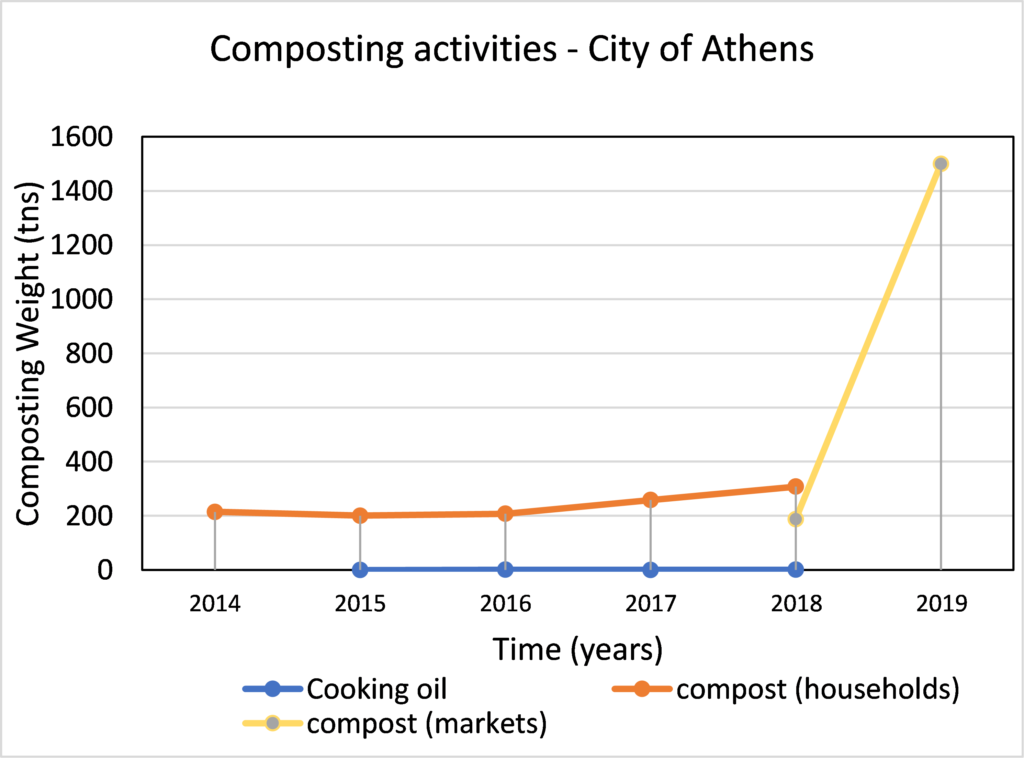In 2015, the City of Athens established its Action Plan for Sustainable Food in Athens. The purpose of this plan has been the transformation of the food system of the city from a non-sustainable to a sustainable one, socially just and green.
During this process and for the period 2014-2016, several Living Labs dedicated to food systems had been organised, focusing on both experts and citizens within the “Athens Food Policy Lab”:
- Collective cooking, where prestigious chefs cooked together with the Afghani refugee and immigrant community and the community of Nigerian women that live in Athens were organised near the city’s central food market.
- Sunday dinners for 5,000 people against food waste took place.
- Several discussion groups and meetings were vital parts of these Living Labs, putting together city officials and officers, social movements, entrepreneurs on food, inhabitants, NGOs, journalists, chefs, bringing together all those actors on vibrant discussions and ideas for implementation.
Regarding food production, Athens does not have any agricultural land, thus it is not self-sufficient, regarding food supply. On the subject of food consumption, despite the overall increase of meat consumption at the end of the 20th century, the ascendant diet remains Mediterranean, fruits and vegetables being the majority of Greek nutrition (47% of the total food consumption for 2019). Most of the fruits and vegetables consumed in Athens derive from agricultural land in the city’s vicinity, while the demand for organic food is on the rise. The consumption of fatty food has decreased; by 50% for cheese, 22% for olive oil and 17% for bread, from 2013 to 2019, according to data from the National Statistical Authority. Food supply in Athens can be characterised as oligopolies; there are few channels that provide food to the city (to food stores and super markets), while in the open-air markets half are merchants and half are producers. There are few places where food can be supplied directly from the producers, while recently there has been a number of shops operating on supplying food that has been ethically and sustainably produced. Composting has started quite dynamically in open-air food markets since 2018, expanding to big hotels, restaurants and super markets in 2019 (increasing composting by 203%), while it is on the rise at household level.
There is still a long way to go to transform the food system of Athens into a circular and sustainable one and putting the notion of “from farm to fork” in the epicentre of thinking and acting, regarding food choices. The Living Labs within FUSILLI will play a vital role into enabling these transformations.

The webpage of Katalahou coop grocery and café shop – an initiative on the provision of ethically and sustainably produced and supplied food in Athens

Timeseries of composting activities in the City of Athens